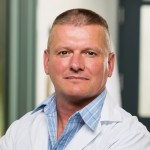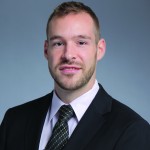The Centers for Disease Control and Prevention Division of STD Prevention (DSTDP) and The American Sexually Transmitted Diseases Association (ASTDA) have partnered to bring you the latest research and best practices for STD prevention with the STD Prevention Science Series.
This quarterly series brings lectures on cutting edge issues by scientists and program experts of world renown to all persons interested in the prevention of STI including HIV.
Presentations in the Series
 Tina Eliassi-Rad is an Associate Professor of Computer Science at Northeastern University and a core faculty member at Northeastern’s Network Science Institute. Her research is rooted in data mining and machine learning; and spans theory, algorithms, and applications of data from networked representations of real-world phenomena. She has over 70 peer-reviewed publications and has given over 180 invited talks and 12 tutorials. Her algorithms have been incorporated into systems used by governments and industry (e.g., IBM System G) and open-source software (e.g., Stanford Network Analysis Project). In 2010, she received an Outstanding Mentor Award from US DOE Office of Science.
Tina Eliassi-Rad is an Associate Professor of Computer Science at Northeastern University and a core faculty member at Northeastern’s Network Science Institute. Her research is rooted in data mining and machine learning; and spans theory, algorithms, and applications of data from networked representations of real-world phenomena. She has over 70 peer-reviewed publications and has given over 180 invited talks and 12 tutorials. Her algorithms have been incorporated into systems used by governments and industry (e.g., IBM System G) and open-source software (e.g., Stanford Network Analysis Project). In 2010, she received an Outstanding Mentor Award from US DOE Office of Science.
 Dr. Robert C. Brunham, MD, is an Emeritus Professor in Medicine at the University of British Columbia and Head of the Vaccine Research Laboratory at the British Columbia Centre for Disease Control, Vancouver, Canada. He is a physician scientist, who studies infectious diseases such as the sexually transmitted pathogen Chlamydia trachomatis. He uses epidemiologic, immunologic and genomic approaches to study the population biology of disease with the goal of identifying evolutionarily stable prevention strategies such as vaccines.
Dr. Robert C. Brunham, MD, is an Emeritus Professor in Medicine at the University of British Columbia and Head of the Vaccine Research Laboratory at the British Columbia Centre for Disease Control, Vancouver, Canada. He is a physician scientist, who studies infectious diseases such as the sexually transmitted pathogen Chlamydia trachomatis. He uses epidemiologic, immunologic and genomic approaches to study the population biology of disease with the goal of identifying evolutionarily stable prevention strategies such as vaccines.
 Dr. Robert C. Brunham is an Emeritus Professor in Medicine at the University of British Columbia and Head of the Vaccine Research Laboratory at the British Columbia Centre for Disease Control, Vancouver, Canada. He is a physician scientist, who studies infectious diseases such as the sexually transmitted pathogen Chlamydia trachomatis. He uses epidemiologic, immunologic and genomic approaches to study the population biology of disease with the goal of identifying evolutionarily stable prevention strategies such as vaccines. He will give two talks; one on the impact of genomics on medicine and the other on the development of a vaccine for chlamydia.
Dr. Robert C. Brunham is an Emeritus Professor in Medicine at the University of British Columbia and Head of the Vaccine Research Laboratory at the British Columbia Centre for Disease Control, Vancouver, Canada. He is a physician scientist, who studies infectious diseases such as the sexually transmitted pathogen Chlamydia trachomatis. He uses epidemiologic, immunologic and genomic approaches to study the population biology of disease with the goal of identifying evolutionarily stable prevention strategies such as vaccines. He will give two talks; one on the impact of genomics on medicine and the other on the development of a vaccine for chlamydia.
 Thomas W. Valente, PhD, is Professor and Interim Chair in the Department of Preventive Medicine, Keck School of Medicine, at the University of Southern California. He is author of Social Networks and Health: Models, Methods, and Applications (2010, Oxford University Press); Evaluating Health Promotion Programs (2002, Oxford University Press); Network Models of the Diffusion of Innovations (1995, Hampton Press); and over 180 articles and chapters on social networks, behavior change, and program evaluation. Valente uses social network analysis, health communication, and mathematical models to implement and evaluate health promotion programs designed to understand and prevent tobacco and substance abuse, unintended fertility, and STD/HIV infections. Valente is co-editor (with Martin Everett) of Social Networks, and on the editorial boards of Network Science and the Journal of Health Communication.
Thomas W. Valente, PhD, is Professor and Interim Chair in the Department of Preventive Medicine, Keck School of Medicine, at the University of Southern California. He is author of Social Networks and Health: Models, Methods, and Applications (2010, Oxford University Press); Evaluating Health Promotion Programs (2002, Oxford University Press); Network Models of the Diffusion of Innovations (1995, Hampton Press); and over 180 articles and chapters on social networks, behavior change, and program evaluation. Valente uses social network analysis, health communication, and mathematical models to implement and evaluate health promotion programs designed to understand and prevent tobacco and substance abuse, unintended fertility, and STD/HIV infections. Valente is co-editor (with Martin Everett) of Social Networks, and on the editorial boards of Network Science and the Journal of Health Communication.
 Dr. Paul Sandstrom received his doctorate from the Department of Immunology at the University of Manitoba where he conducted research on the regulation of tumor progression by the immune system. After completing his postdoctoral research on immune cell regulation and responses to oxidative stress in North Carolina, Dr. Sandstrom joined the HIV/AIDS and Retrovirology Branch of the Centers for Disease Control and Prevention in Atlanta, GA. From 1993 to 2002, he worked as a research scientist at the CDC conducting studies on the regulation of HIV-1 expression as well as sentinel surveillance to detect adventitious zoonotic agents which could pose a threat to the blood system.
Dr. Paul Sandstrom received his doctorate from the Department of Immunology at the University of Manitoba where he conducted research on the regulation of tumor progression by the immune system. After completing his postdoctoral research on immune cell regulation and responses to oxidative stress in North Carolina, Dr. Sandstrom joined the HIV/AIDS and Retrovirology Branch of the Centers for Disease Control and Prevention in Atlanta, GA. From 1993 to 2002, he worked as a research scientist at the CDC conducting studies on the regulation of HIV-1 expression as well as sentinel surveillance to detect adventitious zoonotic agents which could pose a threat to the blood system.
Dr. Sandstrom has authored more than 100 papers accepted in peer-reviewed journals. Since returning to Canada in 2002, he has been the Director of the National HIV and Retrovirology Laboratories, Public Health Agency of Canada. In this role, he has been responsible for planning, directing, and managing laboratory research, surveillance and clinical testing programs as part of Canada’s Federal Initiative on HIV/AIDS. Dr. Sandstrom frequently serves as an advisor to the World Health Organization on laboratory programming pertaining to HIV drug resistance genotyping and sequencing. Dr. Sandstrom also participated in the Canadian response to the ebola crisis in West Africa, deploying on three occasions to provide ebola diagnostic support to Doctors Without Borders/Médecins Sans Frontières treatment facilities in Sierra Leone and Guinea.
 Dionne Gesink, PhD, is an Associate Professor with the Dalla Lana School of Public Health at the University of Toronto. Her research focuses on the social epidemiology of sexual health using mixed methods. Dionne works from a relational paradigm and is particularly interested in the patterns, connections and relationships between social, cultural, behavioural, environmental and spatial factors, and health.
Dionne Gesink, PhD, is an Associate Professor with the Dalla Lana School of Public Health at the University of Toronto. Her research focuses on the social epidemiology of sexual health using mixed methods. Dionne works from a relational paradigm and is particularly interested in the patterns, connections and relationships between social, cultural, behavioural, environmental and spatial factors, and health.
Transgender health is the next frontier in medicine. From rates estimated at 1 in 10,000 just 10 years ago to rates of 1 in 140 today, transgender individuals are more visible than ever before, and with this increased visibility comes the stark recognition of the lack of appropriate research and data to describe the experience and needs of this varied group of individuals. With a focus on gender identity development and expression in childhood and adolescence, Dr. Aron Janssen will describe what we do and do not know about the mental health and medical needs of this population, and the structural barriers that make access to appropriate care difficult. Click here to view the PDF version of this presentation.
 Aron Janssen, MD, is a Clinical Assistant Professor of Child and Adolescent Psychiatry and an Attending Physician at the NYU Child Study Center. He is the founder and clinical director of the Gender and Sexuality Service and Co-Director of the NYU Consultation-Liaison Service, and he is the chair of the LGBTQ Advisory Council at NYU Langone Medical Center. His primary academic focus is on gender and sexuality development and gender variance in childhood and adolescence.
Aron Janssen, MD, is a Clinical Assistant Professor of Child and Adolescent Psychiatry and an Attending Physician at the NYU Child Study Center. He is the founder and clinical director of the Gender and Sexuality Service and Co-Director of the NYU Consultation-Liaison Service, and he is the chair of the LGBTQ Advisory Council at NYU Langone Medical Center. His primary academic focus is on gender and sexuality development and gender variance in childhood and adolescence.
French Disease to Ipergay: Syphilis networks in the PrEP era
John Schneider, MD, MPH
Dr. Schneider describes syphilis networks of most at risk populations in the United States and in particular, younger Black men who have sex with men. He presents comparisons of these networks with HIV networks and the implications of co-infection and contextualizes both networks within the era of PrEP. Additionally, he discusses ongoing and novel network interventions to limit the impact of ongoing domestic syphilis epidemics.
Click here to access the recorded presentation.
 Sheila Lukehart, PhD, is Professor of Medicine and Global Health, and Adjunct Professor of Microbiology, at the University of Washington in Seattle, WA. She is recognized for her work on syphilis and Treponema pallidum, and was awarded the 2007 Distinguished Career Award from the American STD Association. Dr. Lukehart has focused her research on molecular pathogenesis of syphilis, host immune responses to Treponema pallidum, neurosyphilis, syphilis HIV interactions, and antibiotic resistance in T. pallidum. In addition, Dr. Lukehart is Director of the University of Washington STD & AIDS Research Training Program.
Sheila Lukehart, PhD, is Professor of Medicine and Global Health, and Adjunct Professor of Microbiology, at the University of Washington in Seattle, WA. She is recognized for her work on syphilis and Treponema pallidum, and was awarded the 2007 Distinguished Career Award from the American STD Association. Dr. Lukehart has focused her research on molecular pathogenesis of syphilis, host immune responses to Treponema pallidum, neurosyphilis, syphilis HIV interactions, and antibiotic resistance in T. pallidum. In addition, Dr. Lukehart is Director of the University of Washington STD & AIDS Research Training Program.
 Rupert Kaul, MD, PhD is dually trained as a clinical Infectious Disease specialist and a PhD immunologist, and is the director of the Infectious Diseases Division at the University of Toronto and University Health Network. His research is focused on the interaction between genital infections and mucosal immunology, and seeks to develop new ways to prevent and ameliorate HIV infection. This research is based in participant cohorts from Canada, Kenya, Uganda and South Africa, with the support of a University of Toronto/OHTN Endowed Chair in HIV Research.
Rupert Kaul, MD, PhD is dually trained as a clinical Infectious Disease specialist and a PhD immunologist, and is the director of the Infectious Diseases Division at the University of Toronto and University Health Network. His research is focused on the interaction between genital infections and mucosal immunology, and seeks to develop new ways to prevent and ameliorate HIV infection. This research is based in participant cohorts from Canada, Kenya, Uganda and South Africa, with the support of a University of Toronto/OHTN Endowed Chair in HIV Research.
 Kenneth Mayer, M.D. is the founding Medical Research Director of Fenway Health, where he created a community health research program that has developed an international reputation for its capability to conduct community-based peer reviewed research. He is currently a Professor at Harvard Medical School and Attending Physician and Director of HIV Prevention Research at Beth Israel Deaconess Hospital in Boston. Since 1994, he has been the Principal Investigator of the only NIH-funded HIV Prevention Research Clinical Trials Unit in New England focusing on bio-behavioral prevention research. He is the co-author of more than 600 peer-reviewed publications, co-authored the first text on AIDS for the general public and has co-edited 5 academic texts. He is currently a member of the Governing Council of the International AIDS Society.
Kenneth Mayer, M.D. is the founding Medical Research Director of Fenway Health, where he created a community health research program that has developed an international reputation for its capability to conduct community-based peer reviewed research. He is currently a Professor at Harvard Medical School and Attending Physician and Director of HIV Prevention Research at Beth Israel Deaconess Hospital in Boston. Since 1994, he has been the Principal Investigator of the only NIH-funded HIV Prevention Research Clinical Trials Unit in New England focusing on bio-behavioral prevention research. He is the co-author of more than 600 peer-reviewed publications, co-authored the first text on AIDS for the general public and has co-edited 5 academic texts. He is currently a member of the Governing Council of the International AIDS Society.
 Stefan Baral, MD, MPH, FRCPC, is a physician epidemiologist and an Associate Professor in the Department of Epidemiology at the Johns Hopkins School of Public Health (JHSPH). Stefan completed his certification in Community Medicine as a Fellow of the Royal College of Physicians and Surgeons of Canada and Family medicine with the Canadian Council of Family Physicians. Stefan has also been involved in HIV epidemiology, prevention, and implementation research focused on the epidemiology, human rights contexts, and effective interventions for gay men and other men who have sex with men, transgender women, and female sex workers across Western and Central, and Southern Africa and parts of Asia with support from USAID, CDC, NIH, amfAR, and the Global Fund. In addition, Stefan has led or supported the implementation and evaluation of HIV prevention studies globally characterizing effective combination HIV prevention packages for key populations across multiple low and income countries. Stefan acts as the Director of the Key Populations Program for the Center for Public Health and Human Rights at the JHSPH.
Stefan Baral, MD, MPH, FRCPC, is a physician epidemiologist and an Associate Professor in the Department of Epidemiology at the Johns Hopkins School of Public Health (JHSPH). Stefan completed his certification in Community Medicine as a Fellow of the Royal College of Physicians and Surgeons of Canada and Family medicine with the Canadian Council of Family Physicians. Stefan has also been involved in HIV epidemiology, prevention, and implementation research focused on the epidemiology, human rights contexts, and effective interventions for gay men and other men who have sex with men, transgender women, and female sex workers across Western and Central, and Southern Africa and parts of Asia with support from USAID, CDC, NIH, amfAR, and the Global Fund. In addition, Stefan has led or supported the implementation and evaluation of HIV prevention studies globally characterizing effective combination HIV prevention packages for key populations across multiple low and income countries. Stefan acts as the Director of the Key Populations Program for the Center for Public Health and Human Rights at the JHSPH.
 Adaora Adimora, MD, MPH. Ada Adimora is Professor of Medicine and Epidemiology at the University of North Carolina at Chapel Hill. She studies the epidemiology of HIV and STIs. Her work has helped characterize the epidemiology of heterosexual HIV transmission among African Americans, highlighted the role of sexual network patterns in the spread of HIV, and underscored the importance of macroeconomic and social forces in racial disparities in the US HIV epidemic. She is PI of the UNC WIHS site, Chairs the HIV Medical Association and the NIH HIV Prevention Trials Network’s Women at Risk Committee, and is a member of the NIAID Council and the Presidential Advisory Council on HIV/AIDS.
Adaora Adimora, MD, MPH. Ada Adimora is Professor of Medicine and Epidemiology at the University of North Carolina at Chapel Hill. She studies the epidemiology of HIV and STIs. Her work has helped characterize the epidemiology of heterosexual HIV transmission among African Americans, highlighted the role of sexual network patterns in the spread of HIV, and underscored the importance of macroeconomic and social forces in racial disparities in the US HIV epidemic. She is PI of the UNC WIHS site, Chairs the HIV Medical Association and the NIH HIV Prevention Trials Network’s Women at Risk Committee, and is a member of the NIAID Council and the Presidential Advisory Council on HIV/AIDS.
Since the time HIV was discovered as the cause of AIDS, we have known that a wide variety of STDs amplify transmission of the virus. The biological forces that create such risk are increasingly well understood. The greatest challenge has been to design strategies that link detection and treatment of STDs to reduced transmission of HIV.
 Myron S. Cohen, MD is an infectious disease specialist widely known for his work on transmission and prevention of transmission of HIV. Dr. Cohen helped to develop laboratory methods to measure HIV in genital secretions, as well as methods to determine the best antiviral agents to reduce replication of HIV in these compartments. Dr. Cohen is the architect and Principal Investigator of the multinational HPTN 052 trial, which demonstrated that antiretroviral treatment of people with HIV infection prevents the sexual transmission of the virus; this work was recognized by Science Magazine as the “Breakthrough of the Year” in 2011. Dr. Cohen has received the Distinguished Career Award for lifetime achievement in STD/HIV research from the American Sexually Transmitted Diseases Association and the Smadel Award from the Infectious Disease Society of America. Dr. Cohen received the O. Max Gardner from the University of North Carolina System, and the Award for Science from the State of North Carolina, the highest honor in the state. Dr. Cohen is a member of the American Society for Clinical Investigation, the American Association of Physicians and the Institute of Medicine. He is a Fellow of the American Society of Microbiology and the Infectious Disease Society of America.
Myron S. Cohen, MD is an infectious disease specialist widely known for his work on transmission and prevention of transmission of HIV. Dr. Cohen helped to develop laboratory methods to measure HIV in genital secretions, as well as methods to determine the best antiviral agents to reduce replication of HIV in these compartments. Dr. Cohen is the architect and Principal Investigator of the multinational HPTN 052 trial, which demonstrated that antiretroviral treatment of people with HIV infection prevents the sexual transmission of the virus; this work was recognized by Science Magazine as the “Breakthrough of the Year” in 2011. Dr. Cohen has received the Distinguished Career Award for lifetime achievement in STD/HIV research from the American Sexually Transmitted Diseases Association and the Smadel Award from the Infectious Disease Society of America. Dr. Cohen received the O. Max Gardner from the University of North Carolina System, and the Award for Science from the State of North Carolina, the highest honor in the state. Dr. Cohen is a member of the American Society for Clinical Investigation, the American Association of Physicians and the Institute of Medicine. He is a Fellow of the American Society of Microbiology and the Infectious Disease Society of America.
Matthew Golden, MD, is the Director of the Public Health – Seattle & King County HIV/STD Program, and a professor of medicine at the University of Washington School of Medicine. He received his BA in history from Grinnell College, his MD and MPH from Johns Hopkins University, and completed a residency in internal medicine and a fellowship in infectious diseases at the University of Washington. Dr. Golden’s research seeks to integrate public health practice with operational research in the area of HIV/STD prevention. Much of his work has related to the implementation of expedited partner services for gonorrhea and chlamydial infection, HIV partner services, and the use of field outreach to improve the HIV care continuum.
Dr. Thomas Quinn reviews the current epidemiological trends in the global AIDS pandemic and review recent findings in the dynamics of viral transmission from both a viral and population level perspective. He will discuss how this biomedical information can be incorporated in the implementation of combination prevention strategies in efforts to control this pandemic.
“Program Science” is a relatively new construct that has emerged to help address the gap between the domains of public health programs and scientific research. In this presentation Dr. James Blanchard discusses the challenges and issues for developing, synthesizing and translating scientific knowledge into the design and implementation of public health programs focusing on STI and HIV prevention. Examples from several different countries in diverse epidemiological and socio-cultural contexts are used to illustrate emerging approaches to improve assessment and program strategies, definition of programs and prevention services, and measuring the progress and achievement of programs.
 J. Dennis Fortenberry, MD, MS, is an adolescent medicine physician and researcher at the Indiana University School of Medicine. He is principal investigator of this study of the penis microbiome, funded through the Human Microbiome Project and NIAID. Currently he also serves as Co-PI on a NICHD protocol entitled “HIV-Related Care Engagement: Linkage to Care and Care Seeking for HIV-Infected Adolescents.” Over the past 25 years, he has guided a research program focused on sexuality, sexual health, and sexuality transmitted infections. Highlights include description of STD-related care-seeking among adolescents, demonstration of the importance of Chlamydia reinfection among adolescent women, evaluating the covariation of health-protective and health-harming behaviors, addressing the contextual and interpersonal factors associated with adolescent sexual activity, and national surveys of sexual behavior and sexual health across the lifespan.
J. Dennis Fortenberry, MD, MS, is an adolescent medicine physician and researcher at the Indiana University School of Medicine. He is principal investigator of this study of the penis microbiome, funded through the Human Microbiome Project and NIAID. Currently he also serves as Co-PI on a NICHD protocol entitled “HIV-Related Care Engagement: Linkage to Care and Care Seeking for HIV-Infected Adolescents.” Over the past 25 years, he has guided a research program focused on sexuality, sexual health, and sexuality transmitted infections. Highlights include description of STD-related care-seeking among adolescents, demonstration of the importance of Chlamydia reinfection among adolescent women, evaluating the covariation of health-protective and health-harming behaviors, addressing the contextual and interpersonal factors associated with adolescent sexual activity, and national surveys of sexual behavior and sexual health across the lifespan.
Dr. Connie Celum describes lessons learned in moving from observational epidemiology of STIs and HIV interaction with a focus on HSV-2 to testing interventions to reduce HIV acquisition and transmission. She describes work on combination HIV prevention to achieve high coverage of HIV testing and linkages to effective interventions (HIV treatment and male circumcision) in subSaharan Africa.
Ward Cates, MD, MPH (1942-2016) served as the director of the Division of Sexually Transmitted Diseases at the CDC from 1982 to 1992, revolutionizing the division of sexually transmitted diseases as he worked to integrate the division into the rest of the CDC. He introduced epidemiology as the “basic science” of public health and insisted on bringing scientific rigor to sexually transmitted disease (STD) prevention programs. Cates also expanded the work of the division to include STD sequelae, such as infertility and ectopic pregnancy, and played a critical role in defining the contribution of STDs to the spread of HIV, the phenomenon ultimately identified as “epidemiologic synergy.”
From 1992 to 1995, Cates returned to the Epidemic Intelligence Service as director, allowing him to focus on the discipline of epidemiology that was so central to his thinking. He was recruited to Family Health International (now FHI 360), in 1995, and was appointed as president and CEO in 1998. Working at FHI, Cates became a leader in the prevention of HIV. He launched the NIH Prevention Trials Network in (HPTN) 1999, and until his death, he played key roles in virtually every project related to HIV prevention whether behavioral or biological. In his last year, Ward worked tirelessly to promote a randomized controlled trial to better understand the role of hormonal contraception in the acquisition of HIV.
